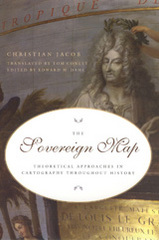
Ancient Greek thought is the essential wellspring from which the intellectual, ethical, and political civilization of the West draws and to which, even today, we repeatedly return. In more than sixty essays by an international team of scholars, this volume explores the full breadth and reach of Greek thought--investigating what the Greeks knew as well as what they thought about what they knew, and what they believed, invented, and understood about the conditions and possibilities of knowing. Calling attention to the characteristic reflexivity of Greek thought, the analysis in this book reminds us of what our own reflections owe to theirs.
In sections devoted to philosophy, politics, the pursuit of knowledge, major thinkers, and schools of thought, this work shows us the Greeks looking at themselves, establishing the terms for understanding life, language, production, and action. The authors evoke not history, but the stories the Greeks told themselves about history; not their poetry, but their poetics; not their speeches, but their rhetoric. Essays that survey political, scientific, and philosophical ideas, such as those on Utopia and the Critique of Politics, Observation and Research, and Ethics; others on specific fields from Astronomy and History to Mathematics and Medicine; new perspectives on major figures, from Anaxagoras to Zeno of Elea; studies of core traditions from the Milesians to the various versions of Platonism: together these offer a sense of the unquenchable thirst for knowledge that marked Greek civilization--and that Aristotle considered a natural and universal trait of humankind. With thirty-two pages of color illustrations, this work conveys the splendor and vitality of the Greek intellectual adventure.

Beginning with a historical overview of maps and their creation—from those traced in the dirt by primitive hands to the monumental Dutch atlases and ornate maps on Italian palace walls—Jacob goes on to consider the visual components of cartography: the decorative periphery, geometric grid, topographical lines, dots, details of iconographic figures, and many other aspects. Considering text on maps—titles, toponyms, legends, and keys—Jacob proposes that writing can both clarify and interfere with a map's visual presentation. Finally Jacob examines the role of the viewer in decoding a map's meaning and the role of society in defining the power of maps as authoritative depictions of space.
Innovative in its philosophical motivation and its interdisciplinary approach to looking at and writing about maps, The Sovereign Map is eagerly awaited by scholars from many different fields.

READERS
Browse our collection.
PUBLISHERS
See BiblioVault's publisher services.
STUDENT SERVICES
Files for college accessibility offices.
UChicago Accessibility Resources
home | accessibility | search | about | contact us
BiblioVault ® 2001 - 2024
The University of Chicago Press









